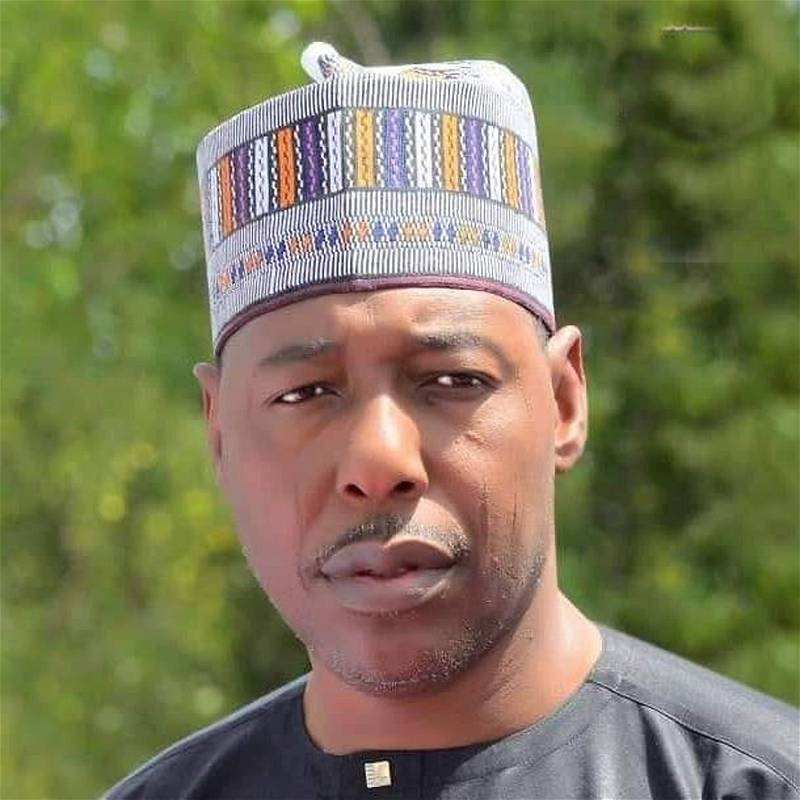…Says PVC will be available for new registrants by November
By Chimezie Godfrey
The Independent National Electoral Commission, INEC, has declared that the registration of 12, 298, 944 voters, and 2.7 invalid registrants million at the end the continous voter registration exercise.
The INEC Chairman, Professor Mahmood Yakubu revealed this in his keynote address delivered by at an event organized by the National Endowment for Democracy (NED) and the International Foundation for Electoral Systems (IFES) at the NED Headquarters, Washington DC, United States of America, on Tuesday.
Yakubu stressed that the 2023 election is significant because the incumbent President is not eligible to run, adding that there are 18 political parties in the race to produce the next President to be elected by 95 million voters.
He revealed that the Commission had over 84 million registered voters in 2019, but with last Continuous Registration of Voters (CVR), they are adding at least 10 million Nigerians and that will take the Register of Voters to 95 million.
Yakubu who noted that the 15 West African countries with Nigeria inclusive with number of registered voters in the 14 countries combined is 73 million.
He disclosed that Nigeria had 95 million registered voters which indicates that there will be 22 million more voters in Nigeria than the whole of West Africa put together, adding that each time Nigerians goes to the polls, it is like the whole of West Africa voting.
He revealed that at the end of the continous voters registration exercise, 12, 298, 944 citizens completed their registration, while 2.7 million invalid registrants was recorded.
He said,”Many citizens seized the opportunity of the online registration during the period of one year between June 2021 and June 2022 when that option lasted. Similarly, the physical registration continued simultaneously with the online pre-registration for a period of one year including a one-month extension in response to appeal by citizens. At the end of the exercise, 12, 298, 944 citizens completed their registration. This is more than the entire voter population in the Republic of Gambia, Guinea-Bissau, Liberia, Sierra Leone and Cape Verde. We are such a huge country of great potentials.
“We have completed the cleaning up of the data using the Automated Biometric Identification System (ABIS) that combines the fingerprint and the facial authentication of registered voters. Those who registered twice, those who are underage or those who had no reason to register as provided by law have been weeded out. The exercise was completed a few days ago. We have not even shared the information with Nigerians, but we have 2.7 million invalid registrants and they have been weeded out. We’ll continue to take steps necessary to protect the integrity of the Register of Voters because it is fundamental to the conduct of elections. There can’t be credible elections without a credible register of voters.
“Nigerians have been asking the Commission, when you finish registration and clean-up of the data, what about our Permanent Voters’ Cards (PVC)? This will be available for new registrants by next month – November. We are looking at early to the middle of the month to make the cards available. We have already printed over 50 percent of the cards but we haven’t delivered them to the states yet. As we clean the data, we also print the cards. Nigerians who have registered should be rest assured that they will have their cards ahead of the general election. We also need to do so in good time because the law now requires us to publish the number of cards collected per polling unit.”
On the Bimodal Voter Accreditation System (BVAS), Yakubu said,”what we have done basically is to retire our good old Smart Card Reader (SCR). The SCR by definition reads the card. Each biometric card has a chip embedded inside it and in the SCR, you have the sam card.
“So, there’s a handshake between the sam card and the sim card which enables the SCR to extract the voter’s information from the Permanent Voter Card. But what we have done with the BVAS is to domicile the data of registered voters in a polling unit in the BVAS. So yes, the BVAS also reads the card, but there are a variety of ways of reading the card. If you enter the Voter Identification Number (VIN) of the voter, his/her information pops up. But even if you confirm that the voter is registered and his name has been certified by the BVAS, he or she must go through biometric accreditation using the fingerprint and if this fails, the option of facials is used. And this is also guaranteed by law.
“So, what has the BVAS done?
It has eliminated multiple accreditation that was observed in previous elections. Now, you are absolutely sure that the person who is accredited is actually the voter and the bearer of the card.
“It has increased public confidence in the outcome of elections as shown in the recent off cycle elections. People tend to be more confident now with the protection of the process of accreditation using technology.
“It has eliminated the use of the Incident Form.
“For those of you who have been following our elections for a long time, when the Card Reader was introduced, the machine would read the card, but it may not read the biometrics. So, when it fails to read the biometrics, they then say – give the voter the Incident Form. And though that, many people voted using identity theft. We have eliminated the Incident Form. So, every registered voter must go through the biometric and the facial, and we jokingly say that the only way the two processes can fail, particularly the facial, is when the voter forgets his or her face at home on election.
“The system of using the BVAS for the conduct of elections has come to stay. There’s no going back.”
He revealed that Commission has introduced another innovation called the INEC Result Viewing (IReV) portal to ensure results are uploaded in real time and this has increased transparency in result management.
He said,” Another innovation that we introduced is the INEC Result Viewing (IReV) portal. We are perhaps one of the few countries in the world that transmits polling unit level results in real time on election day.
“Proudly, I can say we are the first to introduce it in Africa. I was in Nairobi in August and they did so, but I told my friend, (Wafula) Chebukati, (Chairperson of the Independent Electoral and Boundaries Commission of Kenya) that he must have borrowed the idea from Nigeria. In 2017, they tried to transmit raw data. But in Nigeria, we say don’t transmit raw data, but transmit scanned images of the polling unit level results which is safer and less susceptible to hacking than transmitting raw figures.
“Significance of IReV – results are uploaded from the polling units in real time and this has increased transparency in result management. Some of you here may recall that the Observers’ Reports from 2019 harped on the need for the Commission to ensure transparency in result management. This is our response to the request for greater transparency in result management.
“It has helped us to eliminate the falsification of results at polling unit level to the collation centres. Sometimes, as the results move from the polling unit level where the election is conducted to the collation centres, some of the figures changed. But now everybody sees the results from the polling unit level and some of the political parties that have their own situation rooms actually know the outcome of the elections even before we make an official declaration. But they still have to wait for our official declaration anyway.
“We have deployed the IReV in 105 off-cycle and bye-elections. We believe that the system is robust and we are taking additional measures to safeguard and fortify our web resources generally against threats of attack.”
On inclusivity, he said they have created a new Department of Gender and Inclusivity in the Commission and within the limits of available resources.
“We have provided Assistive Devices for Persons with Disabilities, such as Braille Ballot Guide and Magnifying Glasses for the vision impaired and those living with Albinism. This was specifically recommended by the Albino Foundation. We work with the Albino Foundation to provide Magnifying Glasses and we work with Inclusive Friends to provide the Braille Jacket, which has the acronyms of political parties in Braille.
“The person who needs it inserts the ballot paper in the jacket and such person can vote unassisted. But for those who don’t read braille, they can still bring trusted relations on election day.
“We have posters for individuals who are hard of hearing because they also complained that “INEC provided Braille Jackets and Magnifying Glasses, what about us? We can see, but we can’t hear, what do we do?” So, the Commission created posters for them which they can read on election day and we’ll continue to give more to ensure inclusivity,” he said.
He acknowledged that that the enthusiasm of the youths is great, adding that majority of “our registrants, 71 percent, are young people between the ages of 18 and 34. So, we are excited just as they are excited. The more we introduce technology, the more they get excited.”
He revealed that some of the concerns they have going the 2023 elections include the issue of insecurity, and the negative use of the social media, among other challenges.
“Are there concerns about the 2023 general election? I’ll be the last to say there are no concerns. The first concern is the perennial issue of insecurity in different parts of the country, compounded by the traditional issues of thuggery during elections organized by some of the political actors.
“I say it is a perennial issue because at the end of the day, it is nothing new. However, the dimension of the insecurity is concerning in the sense that in the past, it was localized or confined to a particular part of the country, the northeast. But now it is more widespread and we are keeping our eyes particularly on the northwest and the southeastern parts of the country.
“Elections are conducted by human beings. We worry about the security of our officials, voters and the materials to be deployed. Without them, we cannot conduct elections. We have spoken to the security agencies, they have assured us that the situation will improve before the elections. So, fingers crossed. Those who are supposed to secure the environment have assured us that they will secure the environment for us to conduct elections. Our responsibility is to conduct elections.
“The social media has been a force for good. The Commission does not support censorship. We believe that the antidote to fake news is greater transparency and openness and we have been demonstrating greater transparency and openness.
“The social media plays a very important role in voter education and deepening democracy but it also has the potential of skewing the narrative with the wrong information that impugn the integrity of officials or seek to delegitimize the Commission and the process either before, during or after the elections. Publication of fake election results is a potential trigger for violence.
“What we have done is to continue to deepen our cooperation and relationship particularly with the organized social media. In Nigeria, there is a forum called the Guild of Corporate Online Publishers (GOCOP). They have over 80 members and only last week, I was in Lagos and engaged with them.
“We’ll continue to engage with them. But the problem is not always with the organised online platforms, but with the lone rangers or groups using platforms that complicate matters for everyone,” he said.




